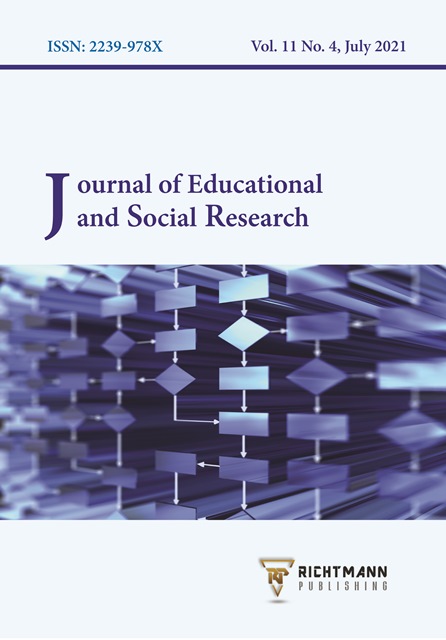Self-Determination Factors and Their Impact Through the Relative Autonomy Index on Skills-Based Learning
DOI:
https://doi.org/10.36941/jesr-2021-0084Keywords:
relative autonomy, skills-based learning, controlled motivation, autonomous motivation, learning difficultiesAbstract
Through this study, we aim to identify the relationships between self-determination factors and skills-based learning, as well as the impact of these relationships on increasing the quality of skills-based learning in lower secondary education. The methodology of this paper is the use of quantitative methods of descriptive and inferential statistics in order to study the principle of self-determination through statistical estimation of the RAI (Relative Autonomy Index) coefficient. The data for the conduct of the empirical study were made possible by the questionnaires of the academic self-regulation type. The study includes two samples of students divided by the learning difficulty level. The novelty of this study is precisely the inclusion of the students with learning difficulties and the comparison of their outcomes with those of progressive students. There are many studies on the latter, some of which have guided the idea of this study. The Relative Autonomy Index was built by assessing the motivation sublevels dependent on their position in the self-determination process. Consequently, the data were collected by the standard academic self-regulation questionnaire, for the students with learning difficulties (45 students) and progressive students (45 students). The content of the questions is mainly about the reasons that make students do their works at school. The study of the RAI variable was conducted by treating the data according to their classification in terms of students' level of learning difficulties. To conclude on the relation of controlled motivation to relative autonomous motivation, the results of cross-quartile and descriptive distribution of RAI variable were studied. According to the selected sample, the analysis of this empirical study does not give us a good picture of the implementation of the skills-based curriculum, a process, which should enable each student to master the key skills for lifelong learning.
Received: 20 April 2021 / Accepted: 16 June 2021 / Published: 8 July 2021
Downloads
Downloads
Published
Issue
Section
License

This work is licensed under a Creative Commons Attribution-NonCommercial 4.0 International License.
This work is licensed under a Creative Commons Attribution-NonCommercial 4.0 International License.









